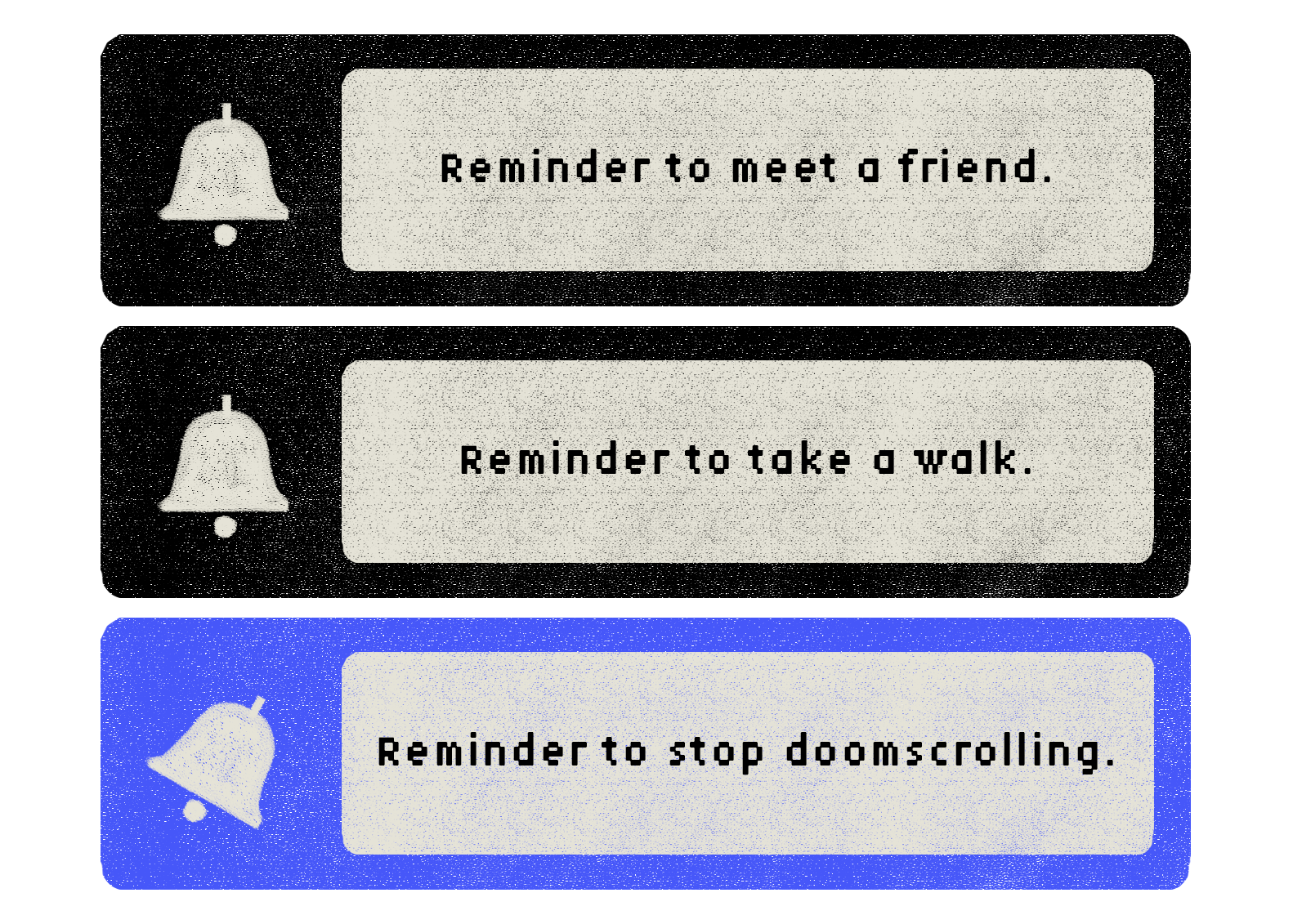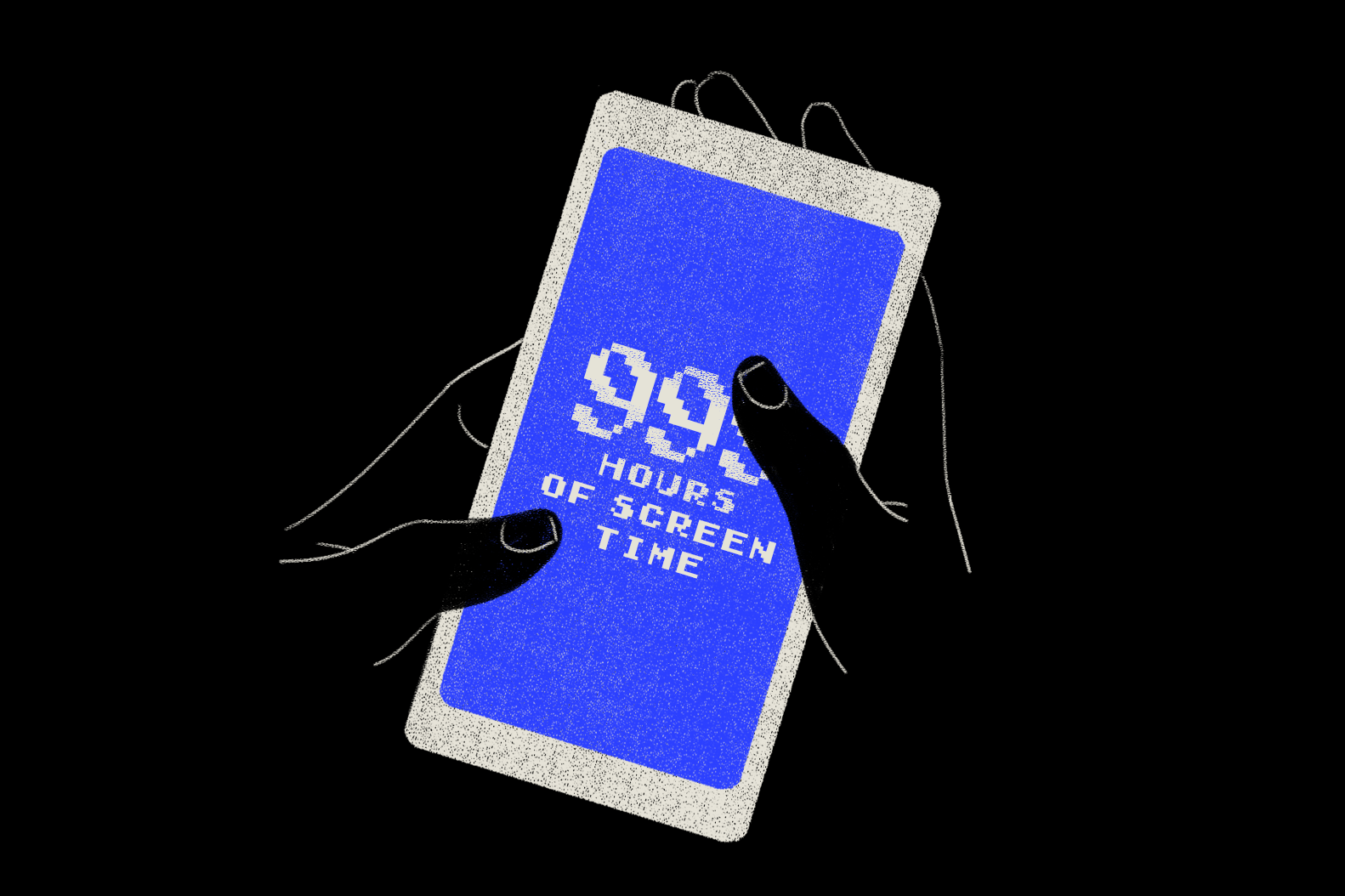CNA recently released an article which contained some eye-opening findings from a study done by the Institute of Mental Health (IMH), establishing a strong link between excessive social media use and the onset of mental health symptoms such as depression, anxiety and stress.
The National Youth Mental Health Study (NYMHS) involved 2,600 young adults aged 15 to 35 and was conducted from October 2022 to June 2023.
Besides excessive social media use, two other significant factors that contributed to the risk of developing mental health symptoms were body image issues and cyberbullying.
With 1 in 3 young individuals between the age of 15 to 35 reporting to have experienced such mental health symptoms, this is a growing concern that continues to escalate. And thinking of all my friends who fall in that age category, the gravity of this situation hits much harder.

What is your screen time?
The NYMHS defined excessive social media use as spending more than three hours daily on social media platforms. Alarmingly, they found that approximately 1 in 4 youths engaged in excessive social media use. The study reported that these young people were more likely to experience severe or extremely severe mental health symptoms.
I am so glad that phones these days let us check our screen time and even break down the amount of time spent on each app category. After this news article was released, I had a quick peep at the amount of time I spent on social media.
Though I am proud to announce that I daily spend an average of one hour on my social media applications, I can’t say that this duration would remain consistent if I hadn’t chanced upon this article.
Hence, I am going to employ some practical steps to curb my slight social media addiction. If you’re struggling like I am, I hope these strategies can offer some help for you too.

First, I keep my mornings free of social media by being mindful not to instinctively open up apps right after waking up.
I often find that what starts as a quick glance all too easily turns into uncontrollable 30-minute scroll fests. I also plan to pack a physical book to read on long bus rides and make it a point to engage in conversations when I have meals with colleagues or friends.
It’s all too easy for me to whip out my phone during my downtime, but I am making it a point to be more present during face-to-face interactions so that I can build meaningful connections.
Finally, I have set a time limit for my Instagram and YouTube usage to 30 minutes each. I am thankful that we have tools to manage our screen time!
While these steps may help, I believe it is even more important to examine the posture of our hearts as we consume content online.
As a daily Instagram user, I often envy my high-flying friends who post about their monthly vacations or friends who look like they’re constantly having fun.
That often leaves me feeling dissatisfied with my own life, questioning why I’m so “unsuccessful” or why my day-to-day routines seem so mundane in comparison.
My perception of reality becomes distorted, as I strive to match up to such unrealistic ideals.
Blindly consuming social media content can induce feelings of inadequacy, especially when we compare our lives against our peers.
What’s the antidote to that? Well, I am reminded of Ephesians 2:10 which reads: “For we are God’s handiwork, created in Christ Jesus to do good works, which God prepared in advance for us to do.”
We must realise that our value does not lie in earthly successes but in fulfilling God’s uniquely designed purpose for our lives. We can confidently rest in His plans for our lives, plans far greater than what we can imagine.
By grounding ourselves in this biblical truth, we can approach content on social media with more discernment and without letting it distort our sense of worth and joy.
It is also important to note that what people showcase online are often the best moments of their lives, leaving out the struggles and challenges they face behind the scenes.
Acknowledging this reality and focusing on what we can be grateful for in our lives (1 Thessalonians 5:16-18) can liberate us from this cycle of comparison and allow us to appreciate each of our unique God-given life journeys.
“Wow, she’s so pretty”
This brings me to another crucial problem addressed in the study — body image issues.
According to the study, some 20.2% — or 1 in 5 — of young people in the population reported having moderate to severe body shape concerns. Unfortunately, these individuals are about 4 to 5 times more likely to experience stress, anxiety, or depression.
As I did more research regarding body image issues in Singapore, I came across a study done by Millieu Insight in 2022 which also established a concerning link between body image anxiety and social media usage.
That study reported that in 2022, approximately 1 in 6 Singaporeans were at potential risk of having body image anxiety and 56% of the at-risk group spent an average of 3 hours or more across all social media platforms daily.
I find that the correlation between excessive social media usage and an increased risk of body image issues, is related to the way we compare ourselves with others online.
As a huge K-drama fan, I go through countless phases of fangirling over pretty Korean actresses and spend considerable amounts of time browsing through the social media profiles of my favourite actors and actresses.
While looking through their profiles, I find myself comparing my body size to theirs and thinking about how nice it would be to have a slim body like theirs.
While this comparison can seem harmless at first, it does lead to an unhealthy sense of dissatisfaction with my own body. I start questioning why I don’t look like them and sometimes even craft out drastic diet plans to achieve a “perfect” physique.

While it is important to care for our bodies by exercising regularly and eating healthily, what our bodies look like should not determine what we’re worth.
Consider what God said to Samuel in the Old Testament, when Samuel was impressed by Eliab’s impressive stature and appearance: “The Lord does not look at the things people look at. People look at the outward appearance, but the Lord looks at the heart.”
This verse reminds us that while humans often judge others based on their external attributes, God treasures the qualities of the heart. What truly matters is what’s inside, rather than conforming to the pattern of this world (Romans 12:2).
“It’s just banter”
It breaks my heart to hear that about 1 in 5 youths have experienced some form of online bullying; these young individuals are twice as likely to suffer from depression, anxiety or stress.
In the study, they defined cyberbullying as the use of technology to put others down, which typically involves platforms like text messages or social media.

While I have not personally experienced cyberbullying in my own life, I have heard countless stories from friends who have.
Some of my friends have had to quit gaming altogether, because they were victims of toxic online behaviour. Witnessing them playing the games, I was appalled by the harsh language being thrown around loosely by players online.
This led me to reflect on the distinction between what some might consider “banter” and what constitutes cyberbullying.
It is way too easy for individuals to dismiss their hurtful comments as merely “banter”, convincing themselves that the other person behind the computer should not take what they said seriously.
The reality is, such insults or harsh words can have lasting impacts on others, especially when it keeps on happening.
The cumulative impact of such experiences can lead to lowered self-esteem, resulting in an increased risk of developing mental health symptoms.
Ephesians 4:29 highlights the need for respectful communication: “Do not let any unwholesome talk come out of your mouths, but only what helps build others up according to their needs, that it may benefit those who listen.”
Whether we’re speaking in the real world or online, this translates to being intentional about our words and considering their impact on others.
Before posting stuff online or making a comment in real life, I urge everyone to take a moment to reflect upon whether our words are uplifting or demeaning.
Whatever we do, we must encourage and build one another up.
Together as a body of Christ
In the church, we must make sure to be well aware of the prevalence of mental health challenges that our youth face today.
We must start addressing these issues in our spiritual communities with sensitivity, with openness and without shame, so we create an environment where it’s easy to speak up and ask for help.
Of course, this isn’t just the responsibility of the leaders, but also the entire congregation.

During a recent church camp, I asked one of my close friends for his prayer request.
To my dismay, he voiced out that he rarely felt joy in his life and admitted that he had been struggling with depression for the past few months. Unfortunately, I did not know how to respond to what he told me and awkwardly uttered a few words of encouragement before praying for him.
Throughout the rest of the camp, I felt very ashamed of my response towards my friend and decided to set aside time to pray about how I could support him in this journey.
Through my time of prayer, God reminded me that it wasn’t my role to “cure” my friend — only God alone could bring true healing in his life. What I was called to do was to care for him and to acknowledge his struggles even if I didn’t fully understand them.
Galatians 6:2 reminds us: “Carry each other’s burdens, and in this way, you will fulfil the law of Christ.”
This verse emphasises the importance of shouldering one another’s burdens and supporting our peers in need.
This may mean offering to pray for them, approaching a pastor with them, or even demonstrating a small act of kindness like bringing them their favourite snack.
Following in Christ’s footsteps, each of us should cultivate a heart of compassion, to create a safe environment for these young individuals to feel loved and cared for.
Ultimately, we are called to stand together as a body of Christ, united in fighting this battle of mental health together with them.
If you are struggling with mental health issues today, I hope you know that God sees you and loves you. He has not forgotten you, and you are not alone.
He sees your pain and longs to bring you peace that surpasses all understanding (Philippians 4:7).
Remember these words from Matthew 11:28-30 in times of trouble: “Come to me, all you who are weary and burdened, and I will give you rest. Take my yoke upon you and learn from me, for I am gentle and humble, and you will find rest for your souls. For my yoke is easy and my burden is light.”
For you, dear friend, I pray that God will be our refuge in times of trouble and a safe harbour where we can find true rest for our weary souls.









